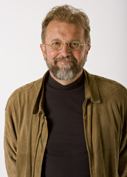
Menu:

Course Descriptions
EDS 114: Understanding Learning
Goal: Examination of learning theories, personally applied.
Content: Students will examine classical, historical, and
contemporary theories of teaching, learning, and intelligence with the intent of
gaining a better understanding of the nature and function of human learning,
especially as applied to their own lives. Focus is on lifelong learning.
Taught: Fall.
Gen. Ed. Category: Critical thinking.
Credit: 3 hours.
EDU 201: Foundations of Education
Goal: To begin a continuing investigation of the nature of
education.
Content: Philosophical, historical, political and social issues
including multicultural aspects, women and education, special needs of children,
and future technological advances in education. 15 hours of field experiences
are required.
Taught: Fall, Spring.
Credit: 3 hours.
EDU 290: Exceptionalities in Children and
Adolescents
Goal: To understand exceptionalities (including gifted) and
mainstreaming exceptional children into the regular classroom.
Content: An examination of the problems of children with evidence
of mental, physical, emotional, and educational difficulties in the classroom.
An examination of the needs of gifted students. An exploration of
differentiation as it relates to all exceptional children. Emphasis is
given to finding and implementing specific adaptive teaching techniques in the
regular K–12 classroom. Legal aspects related to P.L. 94-142, teacher and parent
participation, assessment, placement and facilities. 15 hours of field
experiences are required.
Taught: Fall.
Credit: 3 hours.
EDS 305: Great Voices in Education
Goal: Reading of and responding to a sampling of important writings
on teaching, learning and school.
Content: An exploration of seminal writings throughout the history
of teaching and learning. Includes classical and contemporary, Western and
Eastern, radical and traditional voices.
Taught: Spring, alternating years.
Prerequisites: EDS 114; EDU 201; PSY 331; EDU 290; EDU 255.
Credit: 3 hours.
EDS 310: Education in a Changing World
Goal: Understanding the commonalities and differences between systems
for and approaches to educating children, emphasizing the special role of
diversity and multiculturalism.
Content: A study of how, where, and why our schools and society
are becoming increasingly diverse. A comparison of past and present, foreign and
American systems. Informed speculation as to the character of education in the
future.
Taught: Fall, alternating years.
Prerequisites: EDS 114; EDU 201; PSY 331; EDU 290; EDU 255.
Credit: 3 hours.
EDS 313: Children, Nature and Society
Goal: To understand the relationship between children, play and
the natural world and the ways in which societies support or discourage this
relationship.
Content: Examines the importance of wild places in the social,
emotional, psychological and physical development of children. Students will
learn to think critically about the urbanization/industrialization of our
landscape and the corresponding effects on humanity. Students will explore the
vital connection between nature, learning and well-being.
Prerequisite: EDU 114
Credit: 3 hour elective.
EDU 370: Social Studies in the Early Childhood
and Middle Grades Classroom
Goal: To facilitate understanding and appreciation of inquiry
methods of social studies instruction in the context of classroom learning
community. The candidate will implement meaningful integrative experiences and
curricula in social studies, science, mathematics, and language arts that are
appropriate for the early childhood and middle grades learner.
Content: History, geography, economics and citizenship are all examined
through the lenses of social education, discovery learning, storytelling as
pedagogical method, and expanding horizons perspectives. 15 hours of field
experiences are required.
Taught: Fall
Prerequisite: Admission to the Teacher Education Program.
Credit: 3 hours; integrative experience.
EDS 405: Studying Education
Goal: Understanding the culture of a school.
Content: An introduction to qualitative methods in educational
research. Field work in a school following an ethnographic model yields data
that give an original and critical picture of a school culture.
Taught: Spring, alternating years.
Prerequisites: EDS 114; EDU 201; PSY 331; EDU 290; EDU 255.
Credit: 3 hours.
EDS 430: The Secondary School Classroom
Goal: To understand the social and instructional culture of the
secondary classroom.
Content: This course is designed for educational studies majors
and minors who plan to teach secondary school in specific disciplines. The
student will spend a semester (at least six hours per week) in a secondary
classroom with a master teacher in a specified subject area. She will keep a
semester-long journal that will reflect her responses to three phases of her
classroom experiences: 1. Observation of and getting acquainted with the
teacher, the students, and the culture of the assigned school. 2. Regularly
assisting the teacher in a supportive role. 3. Assisting in teaching activities,
culminating in teaching a three-lesson whole-class unit under the guidance of
the supervising teacher and a Wesleyan faculty observer.
Candidates will meet with a Wesleyan professor and/or the Director of Field
Experiences in a seminar setting at least three times during the semester to
process their experiences.
Taught: Spring
Prerequisites: EDS 114; EDU 201; PSY 331; EDU 290; EDU 255.EDS405
EDU 530: Advanced Pedagogy and
Content for Early Childhood Social Studies
(4 hours)
Hybrid course. Half of class work is face-to-face.
Half is online. Theories of social studies pedagogical content knowledge
(history, geography, social education, democracy, cultural
studies) are explored with the intent of synthesizing personal pedagogical
styles with proven constructivist practices. Various PK-5 social studies
content themes are examined. Special attention is given to the role of the
affect in elementary social studies instruction.
Prerequisite: Admission to M.Ed. program.
Co-requisites: EDU 532; PSY 501; EDU 534
Rev.
08.11